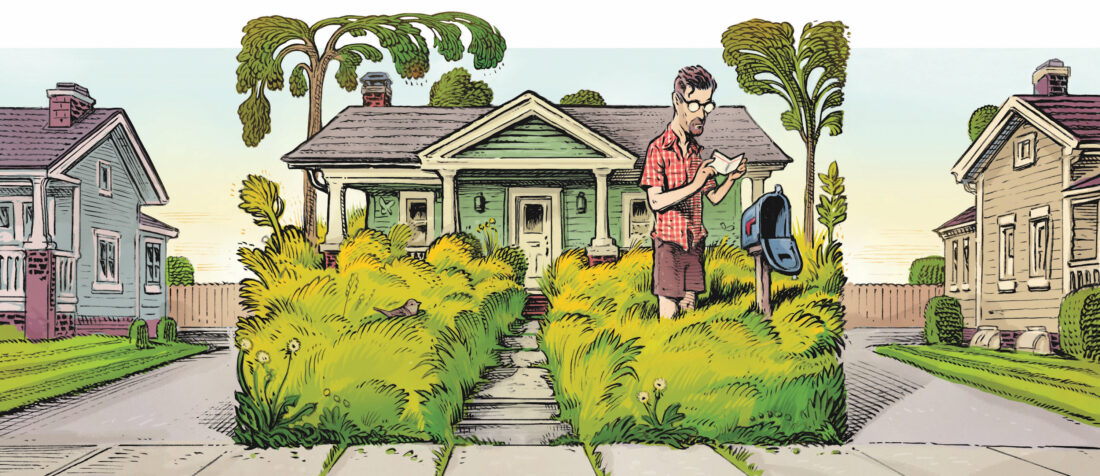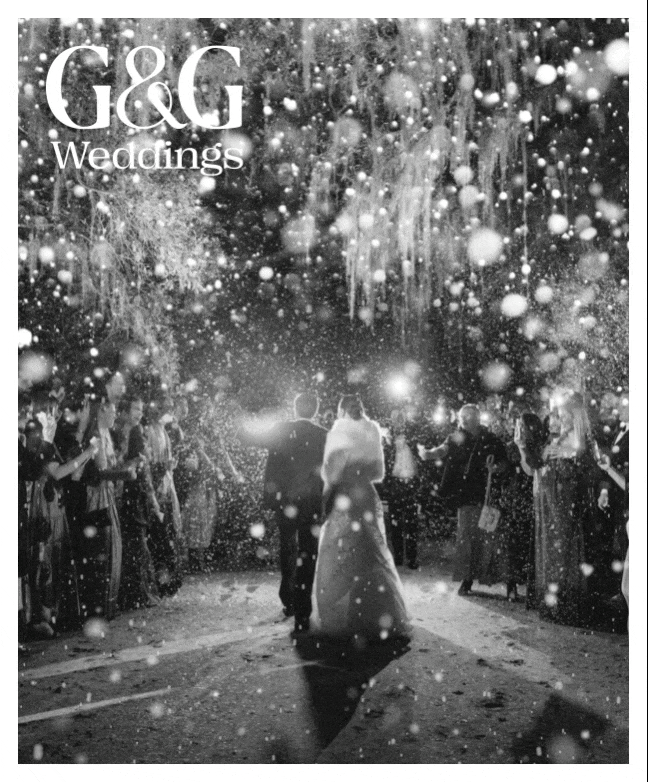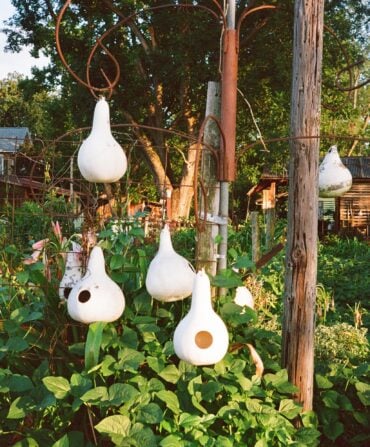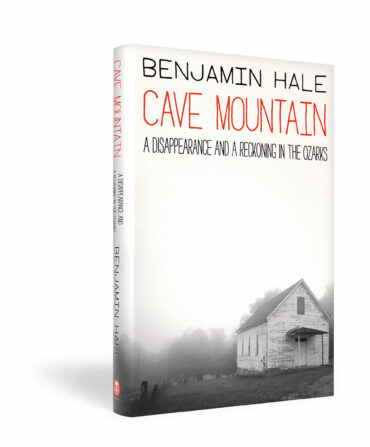It was a handwritten note on an old index card, unsigned, folded in half and left in our mailbox—but when? Surreptitiously, in the dark of night. Had to have been then, as in the old days I checked the mail three times a day or more: once before the mail carrier had actually arrived, once to see if she had brought me anything good (hardly ever), and then later, to see if whatever unknown good thing I was waiting for had been misdelivered to a neighbor who, in the interim, had kindly deposited it at the correct address (though that never happened, not even once). I found the note on the early precheck, so it was an easy deduction: Someone dressed entirely in black had spider-walked through the gutter and thrust it into the innocent mailbox. The first sentence read, menacingly: “Cut your grass.”
This would have been April 1999. I’d bought the house that January, on my fortieth birthday, before anything green had appeared on my new half-acre estate. But months passed, and the landscape was reborn, luxurious and bountiful. I didn’t care about the natural world that much, not in any active sense; I hadn’t planned to “do” anything about it. I had always rented before this: When things looked bad or went awry—leaks, broken appliances, unruly grass—the landlord handled them. Even in my suburban childhood home, my chores did not include yard work. My parents didn’t trust me with dangerous mechanical devices like backhoes or tractors or their domesticated cousin, the lawn mower. I was raised to believe there were others who would perform these tasks, for whom it was their job. Rooms were cleaned; meals were made; lawns were mowed. Life was magical! I did things around the house, sort of, just not those things, and so when I came of age in the last spring of the last century, I too was, in a sense, reborn.
I read the note again, staring glumly at the grass, and realized that whoever this clandestine lover of order and beauty was (and I never found out, by the way) was right. My yard looked like the field surrounding a haunted house, possessed by calf-high weeds. “Cut your grass” (emphasis mine), the note read, and at that moment I had an epiphany: In addition to owning a home, I was also the owner of grass. I had grass that was mine. And I understood what is meant by landlord. A landlord is the lord of the land. Thus I had become, unbeknownst to me, a lord. Not too shabby.
Which brings me to the second sentence of the note. The lawn vigilante had a reason for leaving me the anonymous message and shared his thinking: “An unsightly lawn affects the property values of not only your home but the surrounding homes as well.” In other words, not only had I given up being responsible for nothing as a renter, but I had also become, as a lord, responsible for everything, my home as well as those around me—a huge financial charge.
My hand was forced. My wife found a lawn mower at the thrift shop for ten dollars. It was electric and connected to the house with the longest extension cord ever made. It worked, but it always came unplugged, and I had to tromp back to the house to plug it in—plaintive sigh. When that one died, we chose not to invest in another, and for the past few years I have been borrowing my neighbor’s. Now our lawn is periodically well coiffed, and (because of my efforts, I can only assume) property values are skyrocketing.
So in this age of rewilding yards and HOAs, I share my wisdom: Like planting a tree, the best time to mow your lawn is twenty-five years ago. The second-best—but it’s a distant second—is today.
Have a conundrum of your own? Email [email protected].
Daniel Wallace is the author of Big Fish as well as five other novels, including his most recent, Extraordinary Adventures. He directs the creative writing program at the University of North Carolina at Chapel Hill.









